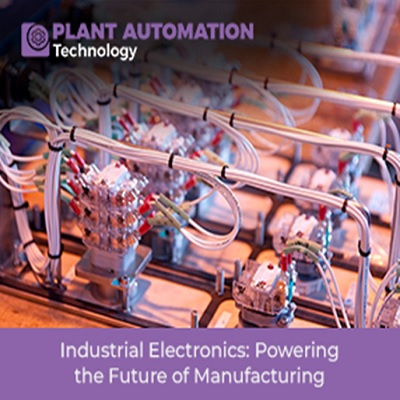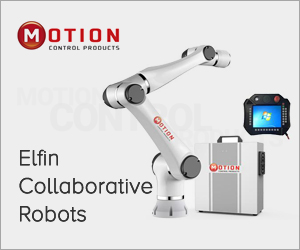Industrial Electronics: Powering the Future of Manufacturing

Introduction
In today's rapidly evolving manufacturing landscape, industrial electronics play a pivotal role in propelling the industry forward. From controlling complex processes to optimizing production efficiency, industrial electronics have become the backbone of modern manufacturing. This article explores the significance of industrial electronics, the supply chain for electronic components, the importance of PCB manufacturing, the role of industrial electronics engineering in repair and maintenance, and the emerging trends shaping the future of industrial electronics.
The Significance of Industrial Electronics
Industrial electronics heavily depend on a robust supply chain for electronic components. Manufacturers rely on a network of trusted suppliers to procure high-quality electronic parts for their production lines. This intricate supply chain ensures the consistent availability of crucial components like microprocessors, resistors, capacitors, connectors, and power modules. These components are essential for building and maintaining electrical systems in industrial environments. Collaboration between manufacturers and suppliers is crucial in ensuring uninterrupted production and minimizing downtime caused by component shortages. Furthermore, the rise of Internet of Things (IoT) technologies has amplified the importance of connectivity and interoperability in industrial electronics, resulting in a heightened demand for wireless communication modules and sensors.
The Supply Chain for Electronic Components
The reliable operation of industrial electronics heavily relies on a robust supply chain for electronic components. Manufacturers rely on a network of trusted suppliers to procure high-quality electronic parts necessary for their production lines. This intricate supply chain ensures the consistent availability of crucial components like microprocessors, resistors, capacitors, connectors, and power modules, which are essential for building and maintaining electronic systems in industrial environments. Collaboration between manufacturers and suppliers is crucial in ensuring uninterrupted production and minimizing downtime caused by component shortages. Furthermore, the rise of Internet of Things (IoT) technologies has amplified the importance of connectivity and interoperability in industrial electronics, resulting in a heightened demand for wireless communication modules and sensors.
Importance of PCB Manufacturing in Industrial Electronics
One critical aspect of industrial electronics is the manufacturing of printed circuit boards (PCBs). PCBs provide the foundation for interconnecting electronic components and enable signal and power flow throughout manufacturing systems. Advanced PCB manufacturing processes involve intricate layering, precise component placement, and soldering techniques to ensure optimal performance and reliability. From single-sided boards to complex multilayered designs, PCB manufacturing plays a crucial role in meeting industrial electronics applications' specific needs. Emerging trends in PCB manufacturing include the use of flexible and rigid-flex boards, component miniaturization, and the adoption of advanced materials and assembly techniques to achieve higher levels of integration and efficiency.
Industrial Electronics Repair and Maintenance
However, despite industrial electronics' robustness, failures and malfunctions can still occur. When these issues arise, industrial electronics repair becomes essential to minimize downtime and maintain production efficiency. Skilled technicians trained in troubleshooting and repairing industrial electronic systems are in high demand. They diagnose and rectify faults in components, wiring, and control systems. Through their knowledge of industrial electronics engineering, these professionals ensure manufacturing processes are quickly restored to full functionality. This prevents costly delays and production losses. In addition, predictive maintenance techniques are gaining popularity, leveraging data analysis and machine learning algorithms to identify potential issues before they cause system failures.
Role of Industrial Electronics Engineering
Industrial electronics engineering also plays a vital role in the design and development of novel systems and technologies. Engineers in this field are at the forefront of innovation, continuously pushing the boundaries of manufacturing possibilities. They work on improving automation, implementing advanced control algorithms, integrating artificial intelligence and machine learning techniques, and enhancing data analytics capabilities. Their contributions lead to more efficient and intelligent industrial systems, enabling manufacturers to stay competitive in today's rapidly evolving global market. Furthermore, sustainability and energy efficiency are becoming key considerations in industrial electronics design. This is driving the development of greener technologies and the integration of renewable energy sources into manufacturing processes.
Emerging Trends in Industrial Electronics
A. Integration of Industrial Electronics with IoT
Furthermore, industrial electronics witnesses several emerging trends that are set to transform manufacturing. One such trend is the integration of industrial electronics into the Internet of Things (IoT). By connecting manufacturing devices, sensors, and equipment to the internet, manufacturers can gather real-time data and insights from their operations. This data can be analyzed to optimize processes, improve energy efficiency, and enable predictive maintenance. This will reduce downtime and enhance overall productivity. IoT-enabled industrial electronics also facilitate remote monitoring and control, allowing manufacturers to manage their operations from anywhere in the world.
B. Adoption of AI and ML Algorithms
One notable trend driving industrial electronics' future is the rising adoption of artificial intelligence (AI) and machine learning (ML) algorithms. These advanced technologies empower industrial systems to learn from data, make informed decisions, and constantly improve performance. For instance, AI-powered algorithms can analyze sensor data, detect anomalies and predict equipment failures. This enables proactive preventative maintenance, minimizing unexpected downtime. ML algorithms, on the other hand, optimize production processes by scrutinizing large datasets, identifying patterns, and making real-time adjustments. As a result, industrial efficiency and product quality are significantly enhanced.
C. Focus on Sustainability and Energy Efficiency
Sustainability and energy efficiency are also pushing industrial electronics innovation. Manufacturers are looking for solutions to lower environmental impact and energy use. Power management techniques and intelligent control systems are used to optimize energy utilization in industrial electronics. Renewable energy sources like solar and wind are incorporated into manufacturing systems using improved power electronics. Energy storage alternatives, such as batteries and supercapacitors, are also gaining traction. This allows for the more effective use of renewable energy and backup power during outages.
Industrial Electronics in Smart Factories and Industry 4.0
Moreover, industrial electronics are playing a crucial role in the development of smart factories and Industry 4.0. These concepts emphasize the integration of cyber-physical systems, data analytics, and automation to create highly efficient and flexible manufacturing environments. Industrial electronics enable seamless communication and coordination of machines, processes, and humans in smart factories. Through advanced connectivity, real-time data exchange, and intelligent decision-making, manufacturers can achieve improved productivity, reduced waste, and enhanced adaptability to changing market demands.
Conclusion
In conclusion, industrial electronics are the driving force behind the future of manufacturing. They provide the foundation for automation, control, and data analysis in industrial settings. The supply chain for electronic components ensures a steady flow of crucial parts, while PCB manufacturing plays a pivotal role in creating reliable interconnections. Industrial electronics repair and engineering contribute to maintaining operational efficiency and fostering innovation. As manufacturing continues to evolve, the importance of industrial electronics will only increase, shaping the future of the industry. By embracing emerging trends and technologies, manufacturers can harness the full potential of industrial electronics to drive their businesses forward, meet evolving customer demands, and create a sustainable future for the manufacturing industry.







